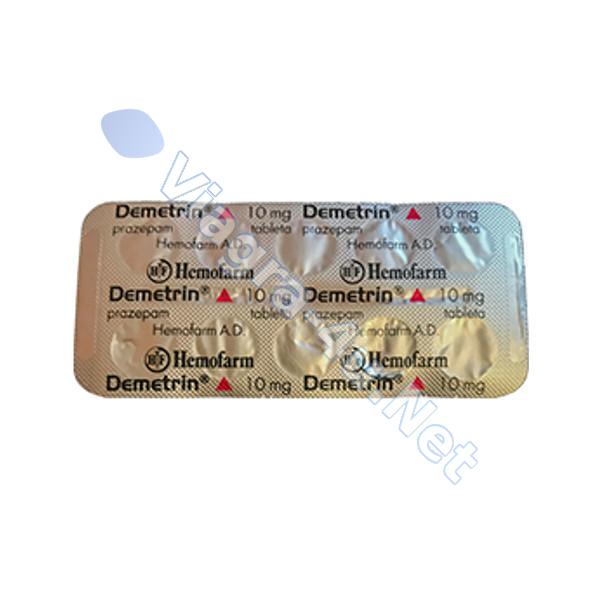

Prazepam is a benzodiazepine derivative drug that possesses anxiolytic, anticonvulsant, sedative and skeletal muscle relaxant properties
Prazepam exerts its therapeutic effects primarily via modulating the benzodiazepine receptor which in turn enhances GABA function in the brain. Prazepam like other benzodiazepines has anticonvulsant properties, but its anticonvulsant properties are not as potent as other benzodiazepines when tested in animal studies. Prazepam is metabolised into descyclopropylmethylprazepam (also known as desmethyldiazepam) and 3-hydroxyprazepam which is further metabolised into oxazepam. Common trade names include Centrac, Centrax, Demetrin, Lysanxia, Mono Demetrin, Pozapam, Prasepine, Prazene, Reapam and Trepidan.
Prazepam is indicated for the short-term treatment of anxiety. After short-term therapy, the dose is usually gradually tapered-off to reduce or avoid any withdrawal or rebound effects.
Side effects of prazepam are less profound than with other benzodiazepines. Excessive drowsiness and with longer-term use, drug dependence, are the most common side effects of prazepam. Other side effects include feebleness, clumsiness or lethargic, clouded thinking and mental slowness.
The symptoms of an overdose of prazepam include sleepiness, agitation and ataxia. Hypotonia may also occur in severe cases.
Benzodiazepines require special precaution if used in the elderly, during pregnancy, in children, alcohol or drug-dependent individuals and individuals with comorbid psychiatric disorders.
Prazepam may interact with cimetidine. Alcohol in combination with prazepam increases the adverse effects, particularly performance impairing side effects and drowsiness.
Demetrin (Prazepam) 10mg has to be stored at a room temperature of not more than 77 degrees F, equivalent to 25 degrees C. It should also be placed in a container which is tightly-closed and without humidity. Keep all drugs away from reach of children and pets.